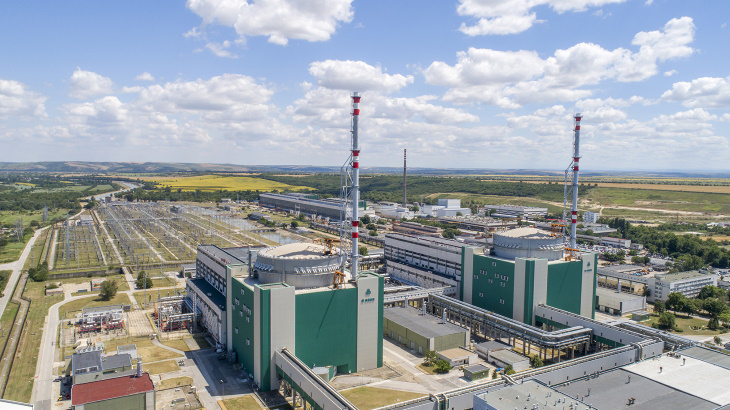
Kozloduy units 5 and 6 (Image: Kozloduy NPP)
The Bulgarian Nuclear Regulatory Agency said it has received an application requesting the issuance of a permit for the use of Westinghouse-manufactured VVER-1000 fuel in unit 5 of the country's Kozloduy nuclear power plant. Westinghouse has signed a decade-long contract to supply fuel for the reactor.
The regulator said the application submitted by the plant for the use of fuel of the Robust Westinghouse Fuel Assembly (RWFA) design in Kozloduy 5 comprises more than 80 documents totaling more than 8400 pages, "mostly technical documentation and safety analyses".
The Nuclear Regulatory Agency noted the first step of the licensing process is for it to check whether all the necessary documents have been submitted in accordance with the requirements.
Bulgaria's National Assembly voted in November last year for an acceleration of the process of securing an alternative to Russia as supplier of nuclear fuel.
The following month, it was announced Kozloduy unit 5 is to switch from Russian fuel with a ten-year contract for Westinghouse to fabricate and deliver VVER-1000 nuclear fuel. The fuel will be supplied from Westinghouse's fabrication site in Västerås, Sweden, with licensing expected over the next year, and supply beginning in 2024.
Westinghouse has been providing fuel for Russian VVER nuclear plants in Ukraine over recent years as the country diversified its fuel supply even before the current war. The RWFA design is an evolution of Westinghouse's previous VVER-1000 fuel design, WFA, which was first introduced as lead test assemblies in South Ukraine unit 3 in 2005.
The Kozloduy nuclear power plant is in the northwest of Bulgaria on the Danube River and provides about 34% of the country's electricity. It features two Russian-designed VVER-1000 units currently in operation, which have both been through refurbishment and life extension programmes to enable extension of operation from 30 to 60 years.
The Kozloduy plant has also signed an agreement with France's Framatome for the supply of fresh nuclear fuel for the sixth unit. The two parties will conclude a contract for up to 12 recharges for the period 2025-2034 inclusive.
 Kozloduy units 5 and 6 (Image: Kozloduy NPP)
Kozloduy units 5 and 6 (Image: Kozloduy NPP)